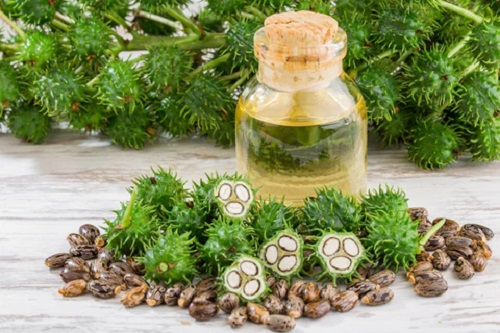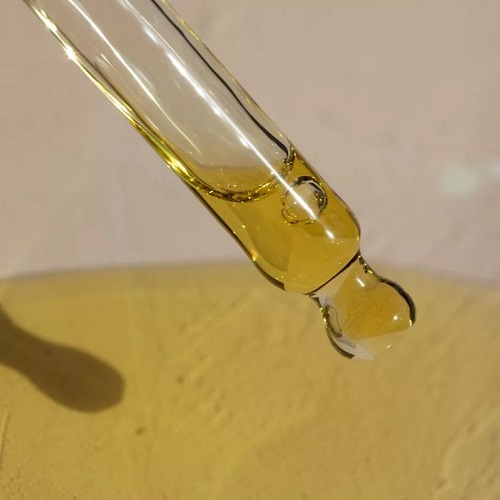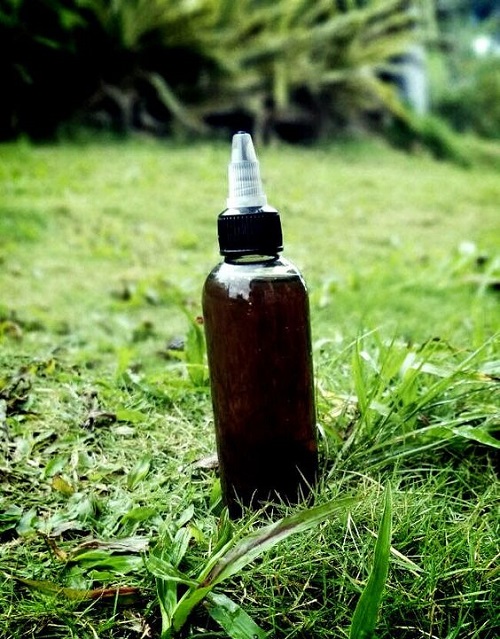Does Castor Oil Kill Grass? Uncover the truth and learn how to effectively use this multi-tasking oil in your lawn care regime!
Castor oil, known for its versatility and numerous applications, has earned a place in day-t-day practices, ranging from cosmetic, holistic, to automobile care. Not just that, it could be a potent lawn care remedy too; however, there’s a lingering question among homeowners and garden enthusiasts—Does castor oil kill grass? Let’s find out!
Here is all You Need to Know about Using Castor Oil for Nails!
Understanding Castor Oil
Castor oil, derived from the seeds of the castor bean plant, is a versatile substance with a rich history of diverse applications. Beyond its more well-known uses in medicine, industry, and cosmetics, it has also found a potent element in lawn care. Understanding the properties of castor oil is fundamental to comprehending its role in grass maintenance.
Castor oil is known for its high viscosity, attributed in part to its major component, ricinoleic acid. This unique chemical composition makes it an effective substance for various applications, including deterring pests in gardens and lawns.
Explore here about castor oil for parasites.
Can Castor Oil Kill Grass?
The short answer is—No.
There’s no substantial evidence to support the notion that it can eliminate grass or weeds. In fact, castor oil is more commonly used as a soil conditioner and a mole repellent rather than an herbicide.
Contrary to the myth, castor oil indirectly supports the appearances of grasses. When applied to lawns or garden areas, it creates an environment in the soil that is less hospitable to moles, voles, and other subterranean pests. These pests, while not directly harmful to grass, are notorious for their tunneling activities, which can disturb grass roots and create unsightly mounds in your lawn.
Thus, castor oil discourages these creatures from burrowing and feeding on roots, effectively reducing the damage they can cause.
Explore here about castor oil for cysts in ovaries.
Benefits of Castor Oil in Lawn Care
1. Effective Mole and Vole Control
The primary role of castor oil in lawn care is deterring moles and voles, which are known for tunneling and damaging grass and plant roots. Castor oil repels these creatures by making their food sources unpalatable. Once ingested or encountered, the oil disrupts the digestive system of these animals, encouraging them to search for food elsewhere.
By minimizing their presence, castor oil indirectly promotes healthier grass growth.
2. Environmentally Friendly
Unlike chemical pesticides that can have adverse environmental impacts, such as contaminating water sources and harming beneficial insects, castor oil offers an eco-friendly alternative for pest control. It is biodegradable and non-toxic to humans and most pets, making it an environmentally responsible option for maintaining your yard.
However, do remember that castor oil can be toxic to pets if ingested in large quantities. Always exercise caution when applying the oil in areas where pets frequently roam.
3. Soil Enhancement
Castor oil does more than deter pests; it also contributes to the enhancement of soil quality. The fatty acids in the oil can help improve soil structure, fostering better aeration and drainage. These improvements create an optimal environment for grass roots to grow, thereby contributing to a more robust and healthier lawn.
Discover here about castor oil for moles.
Application and Considerations
For homeowners considering the use of castor oil in their lawn care routine, the following guidelines are crucial:
1. Concentration
The concentration of castor oil used can have a profound effect on its efficacy as well as potential side effects on your lawn.
- Low Concentration (5-10% solution): A diluted concentration can be used for basic soil conditioning. At this concentration, the oil is unlikely to act as a strong repellent, but it will offer moderate soil benefits without causing harm.
- Medium Concentration (20-30% solution): This level is commonly used for effective pest deterrence, including moles and voles. While it may not harm grass, it could potentially affect the soil’s ability to absorb water and nutrients.
- High Concentration (40-50% solution): At this level, castor oil could have a significant impact on soil quality by creating a barrier that affects water and nutrient absorption, indirectly affecting grass and plant health.
2. Application Method
- Spray Application: For a more even distribution, use a spray bottle. Make sure to evenly cover the area, avoiding pooling or over-saturation that can result in soil imbalance.
- Timing: Apply the oil either early in the morning or late in the afternoon to maximize absorption and reduce evaporation.
3. Combined Ingredients
Many commercially available castor oil-based products may include other ingredients that could alter its effects on grass and soil. These can range from additional nutrients beneficial for plant growth to synthetic chemicals that may have herbicidal properties.
- Nutrient Additives: Some products may contain added nutrients like nitrogen or phosphorus to promote plant growth, making them more than just repellents.
- Chemical Additives: Other products might include synthetic chemicals that could indeed have herbicidal effects, contrary to pure castor oil. Always read labels carefully, and when in doubt, perform a small-scale patch test to see how your lawn reacts.
Always monitor your lawn’s appearance and keep a close eye for any devastative changes. If you find any, pause using castor oil for a while to detect the actual reason.
Here is castor oil for gallbladder stones.
Conclusion
In conclusion, castor oil does not possess the attributes of a grass killer but rather supports its healthy growth by targeting subterranean pests like moles and voles. By discouraging these creatures from damaging your lawn, castor oil contributes to the overall health and vitality of your grass. When applied carefully and consistently, it offers an environmentally responsible solution for pest control.
However, as with any lawn care product, responsible application and consideration of other factors influencing grass health are essential. Armed with this comprehensive understanding, homeowners can make informed decisions about integrating castor oil into their lawn care routine, ultimately nurturing a beautiful, pest-free lawn.
Look here for castor oil for toothache.
FAQs
1. How Should I Apply Castor Oil To My Lawn For Pest Control?
Castor oil is typically diluted with water or another carrier liquid and then applied using a sprayer or watering can. It’s important to focus on areas where mole or vole activity is evident for targeted application.
2. Is Castor Oil Safe For My Lawn, Pets, And The Environment?
Castor oil is considered environmentally friendly and poses minimal risks to your lawn, pets, and beneficial garden insects. It’s a safer alternative to chemical pesticides.
3. How Long Does It Take To See Results When Using Castor Oil For Pest Control In My Lawn?
Results may vary, but it can take 4-6 weeks of consistent application before you notice a reduction in mole or vole activity. Patience and regular monitoring are essential.
4. Can I Use Castor Oil On Other Types Of Pests In My Garden Or Lawn?
Castor oil is primarily effective against subterranean pests like moles and voles. It may not be as effective for above-ground pests like insects. Consider alternative pest control methods for different types of garden or lawn pests.





